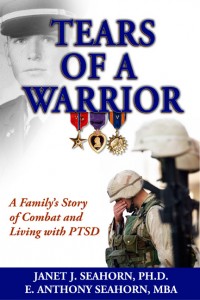Nov
10
THE CONVERSATION
Filed Under Tears of a Warrior, War | Comments Off on THE CONVERSATION
This is a guest post submitted by Ben Heath:
“The conversation was the result of a long day I spent at Arlington to visit three brothers I lost.”
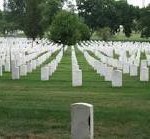
One simple grave among a sea of others. Thousands of them in all directions, collection of brothers gathering for years.
How could a place ever come to be? How much pain? How much suffering, blood, sweat and tears?
This one before me now though, it was different from the rest. It’s the one that had brought me to this place.
You see, this one here was the brother –I still had to face.
It’s a conversation I’d dreaded for years. I knew he’d be there.
Lost in my thoughts, loaded with burdens I thought I had to bear.
It didn’t take him long, not sure if I was really ready.
I was determined to hold my ground. Stand strong. Stand steady.
He was just as I’d remembered, all dirty, hard lookin and thin.
Bastard was just standin there lookin, with that familiar shit eatin grin.
I spent a long minute, trying to talk. Spittin an cussin, choked up, stuttering, not knowin what to say.
How does one express the feelings, the sorrow left from that horrible, horrible day.
Then in an amused voice, I heard him say—At Ease Brother, why you so tense?
We’re all brothers here. You not makin any sense.
The conversation eased some as he let me off the hook.
He could tell I was struggling. I’m sure I had the look.
He said— Look man, I’m gonna lay it all out for you, so listen to me good.
No excuses, No apologies, Move forward. It’s always where we stood.
Every battlefield takes some brothers; some are just bound to fall.
Others gotta keep movin, fight the fight, raise our flag up proud and tall.
They say those of us here, are the heroes. Cause we gave the ultimate sacrifice.
You guys that made it home, Hell, you gotta get on with ya life.
Don’t worry about us brother. We are all at peace here.
You the one got to deal with the memories year after year after year.
You don’t owe us nuthin; just remember one thing I say.
We did it all for the young ones. Be sure you show em the way.
It wasn’t easy for you to come here, shows you still got some of ya bold.
Now go back to your family. I can see you’re shivering from the cold.
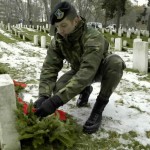
Oh yeah!! One more thing I forgot.
One of the perks to this place — Beers always cold.
Go now in piece. Not one more day should you bother.
Cause no matter what. I STILL LOVE YOU BROTHER!!
Ben Heath
Desert Storm Veteran
Nov
1
Tribute To A Soldier
Filed Under Combat PTSD, Presidential Unit Award, PTSD, Tears of a Warrior, Tribute, Troops, Veterans, War, World War II | Comments Off on Tribute To A Soldier
by Deborah A Maffucci
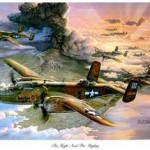 This blog was sent via an e-mail letter last week. Deborah has kindly allowed us to share her comments with our readers.
This blog was sent via an e-mail letter last week. Deborah has kindly allowed us to share her comments with our readers.
Growing up, my knowledge of my dad’s war experience went no further than, “My dad was in WW II and I think he was stationed in England.”
On advice from my therapist, I decided to go to the attic and find my dad’s discharge papers. Oh my!!! After hours of online research (which is amazingly complete) for the first time I realized that my dad was right in the “thick of WWII”
He was 22 years old in 1942 when he joined the USAAF to fight in the European Theatre in WW II. He received four medals and a Presidential Unit Citation. He was at Normandy, the Battle of the Bulge and Rhineland. He was a Technical Sgt. in the 8th Air Force Fighter Command, 66th Fighter Wing, 339th Fighter Group, 504th Fighting Squadron. Oh my stars !!! He was a soldier.
I needed to read about what it is really like to be a soldier. I found your book, “Tears of a Warrior” at my local library and read it almost in one sitting. I couldn’t put it down. A whole world of understanding and compassion for my dad has been felt in my heart. A sense of awakening and belief that I will feel much more true joy and happiness and conquer my life long feelings of anxiety, fear and depression.
I realize now that I am trying to heal from the secondary PTSD that comes from living with a combat warrior and not knowing it. There was no time for my dad to heal because he died in 1969 from cancer. I realize my dad’s war experiences must have been the true source of our family struggle. It wasn’t because my dad didn’t love us, or because he would rather spend all his time at the firehouse, the VFW or the Elks Club, he was a warrior. I understand why he loved being a fireman, he was draw to the danger, why he abused alcohol, to block out his war memories, why he yelled so much, he was a sergeant. All my childhood memories make sense now. Your book has put my life story in prospective. Thank you for that long awaited insight. !!!
My dad was a combat warrior and I never knew it. I just want to give him the biggest hug right now and tell him how proud I am of him. From 1945 until Dec 7th 1969 when he died, he was fighting WWII in his mind and body.
You have truly helped me to understand what happened to my dad in the war and what he must have struggled with after the war. I hold him in a new and special place in my heart.
God bless you,
Debbie Maffucci
P.S. I borrowed your book from the Jesup Library in Bar Harbor, Maine. I believe it was only hours after you so graciously donated a copy to our town. I have recommended it to my counselor to use in her therapy work.
Oct
15
DOES ANYONE CARE?
Filed Under American Patriotism, Tears of a Warrior, Today's War, Trauma, Troops, Veterans, War | Comments Off on DOES ANYONE CARE?
by Janet J. Seahorn, Ph.D
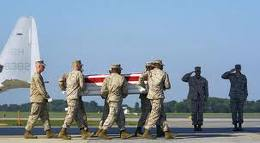
It’s been on the news and in the papers – the latest studies about our military personnel serving in Iraq and Afghanistan.
The studies done by the Pew Research Center were based on two surveys between July and September (Denver Post, Oct. 6, 2011). One survey focused on military individuals who are currently on active duty along with those who have served but are no longer active. The second survey polled over 2000 adults who had never been in the military.
What disturbed me most however was not the report that many of our troops are either “ambivalent” or do not feel the current wars in Iraq and Afghanistan were “worth the sacrifices”. Nope, what was most unsettling for me was that adults polled who had never served in the military did not give much thought to those serving in combat. Many felt that those who volunteered to serve their country knew what they were getting into.
- 84 percent of these modern-era warriors say the general American public has little or no understanding of the problems they face, with 71 percent of the public agreeing.
- Many Americans agree that since the terror attacks in the U.S., the military and their families have made more sacrifices than the general public. But even among this group, only 26 percent say this gap is “unfair,” while 70 percent say that it’s “just part of being in the military”. (msnbc.com staff and news service reports updated 10/5/2011 5:50:40 AM ET 2011-10-05T09:50:40)
I guess this last research bullet just didn’t sit well with me. Probably because as a family we have lived the aftermath of combat, lived with the ghosts of the dead and dying, and had to cope with the nightmares, anxiety attacks, and flashback memories. It isn’t that any vet or his/her family wants empathy for his/her service, but to read that 70% believe that “it’s just part of being in the military” seems like a really insensitive statement.
I am not sure that any person, young or old, has a true idea of what war and combat is about. I am pretty sure, on the other hand, that none of them had any clue that what they do, see, and experience in hell will stay with them for a lifetime. That the war they fought on foreign soils will follow them home and into their living rooms, relationships, and careers. Few of them had any clue that these things were “just part of being in the military”.
Perhaps, since Vietnam, too many Americans have been too far removed from the sacrifices of war. During WWII everyone on the home front had to give up something for the war. Now, most give up nothing, while those few who serve give up far too much. The very least we at home can do is give two or three minutes each day to say a short prayer for those and their families who serve. Just remembering our military will certainly make us, not merely better people, but a more thoughtful, compassionate nation.
Sep
26
Honor Flight
Filed Under American Patriotism, Events, Healing, Honor Flight, Tears of a Warrior, War | Comments Off on Honor Flight
by Janet J. Seahorn, Ph.D
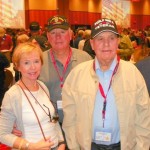
It is early morning Sunday, September 11, 2011 and still dark outside as veterans Earl and Tony Seahorn depart for their long awaited father & son trip to Washington D.C. Veterans from two different wars are about to embark on a patriotic journey of a lifetime. Earl, a WWII Navy veteran, participated in the historic “D-Day” operation at Normandy. Tony, a Vietnam veteran with a Purple Heart was going to be his “guardian” for the trip. Guardians pay their own way to support the WWII and Korean War Honor Flight participants. But when the selection committee discovered that Tony volunteered to support the Wyoming/Northern Colorado Flight, they chose to honor his military service as well. This was the first time Vietnam veterans who have a purple heart have been invited to join the Honor Flight attendees. The pair is one of the first father/son duos to participate together in the Honor Flight program.
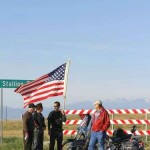
Having so many veterans assembled together, so many experiences good and bad; so much sacrifice all in the name of liberty was humbling. Family members, friends, community groups gathered for the celebration and send off. Because this was the tenth anniversary of 9/11, a moment of silence occurred to mark the time the various planes hit the World Trade Towers, the Pentagon, and Flight 93 that crashed in what is now a sacred field in Shanksville, Pennsylvania.
In the silent room, one could not help but be aware of the high cost of what comes to pass when the United States becomes part of war. To make it even more profound, Sal Gunita, the recent Medal of Honor recipient, spoke to these past warriors and thanked them for their courage, service and sacrifice for our country.
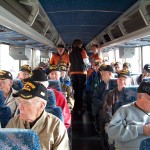
Then the veterans were loaded on four buses for the trip to Denver International Airport where their charter plane was waiting. People lined the outside hotel’s corridor, waving flags and smiling. Horns honked, over one hundred Patriot Guard motorcycle members along with many police, fire department, and sheriff deputy personnel provided an escort. A red and white helicopter hovered over the scene just above a huge American flag fluttering its special salute. As the convoy traveled down the highway, groups gathered on bridges and along roadsides to acknowledge the day and the veteran’s service.
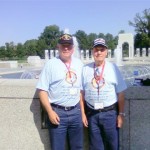
On this tenth anniversary of 9/11 four busloads of warriors began what may be for many one final expedition to visit memorials in our nation’s capital. Memorials dedicated to their service that will forever serve as a visual and silent reminder that Freedom is never Free. For many of these weathered warriors, tears remain in their hearts and souls. For others, they are finally liberated to weep quietly. This time, however, at least some of these tears are not from sorrow, but from gratitude and joy. It is for this reason, we are incredibly appreciative of the many volunteers, donations, and efforts of all those who have made such a huge difference to the many veterans participating in these special Flight of Honor.
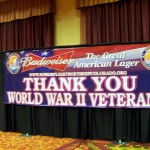
http://www.honorflight.org/about/index.cfm
Jul
19
HEALING DAD
Filed Under Combat PTSD, Healing, PTSD, PTSD treatment, Tears of a Warrior, War | Comments Off on HEALING DAD
by Janet J. Seahorn, Ph.D

It was Father’s Day and I got to thinking about all of the vets who are fathers and all of the special moments we shared as a family, as well as the times when things weren’t all that peaceful. In our book, Tears of a Warrior, we wrote that the good things far out numbered the bad. Yet, those difficult periods left lasting wounds; wounds that still remind us of the challenges of living with Post Traumatic Stress. Healing the wounds within us and the wounds inflicted on our loved ones can be a life long endeavor – a journey that poses some questions in order to mend the injuries.
First, identify who has been wounded and who do you need to help heal, besides yourself? Which relationships have been most broken by past and/or present actions? These can be spouses, children, siblings, parents, friends, and even co-workers. Identifying your “wounded group” will require a great deal of personal self-reflection and honesty. Not something most of us humans do well. Root-canals are easier to endure than admitting we have verbally harmed someone we care about due our unhealthy behavior.
What exactly needs healing? Things like trust wounds, word wounds, responsibility wounds. What actions impaired the ability of others to trust us? What did we do that makes us question if we can trust ourselves? When have we used words to inflict hurt? Interesting things – words; they can leave wounds that are longer lasting and harder to forget or forgive than many bodily injuries. Unlike physical bruises which can be seen on the outside of our bodies, words bruise the heart in ways that can neither be seen nor easily healed.
If you have been able to get this far, the difficult question of How can I mend these wounds? emerges. It isn’t important to do something huge; start with something simple which may not be all that easy. A phone call, a letter – personally I like Hallmark cards or even the new internet e-cards can be the beginning of saying I’m sorry, or Forgive Me. PTSD has been a bit like the words Jesus used on the cross, “forgive them for they know not what they do”. Because we did not know better, it was hard to do better. Most of us had no idea what PTSD was or how living through war left the veteran with residue that impacted his/her actions for years to come. Now we can get better by knowing more about the demons of combat.
Healing others helps us heal ourselves. It is a way of living forward with hope and personal forgiveness. It may be the only way we can diminish some of the demons allowing us to lead a more productive and peaceful life. Don’t wait another day to give yourself this belated Father’s Day gift. Some who have been wounded by our actions may not be ready or able to give forgiveness. This will be their journey. You can’t force forgiveness, nor can you take responsibility for it once you have assumed ownership of your own past actions. Take a deep breath, make that first step and conquer your fears and procrastinations.
“You may be disappointed if you fail, but you are doomed if you don’t try” (William Shakespeare).
Jul
11
NOW THIS IS RESILIENCE
Filed Under Combat PTSD, Life, PTSD, Tears of a Warrior, War | Comments Off on NOW THIS IS RESILIENCE
by Janet J. Seahorn, Ph.D
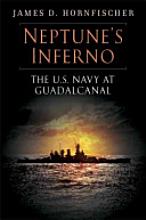
This is just one story of one veteran who served in World War II. We received it in a letter from a man who is approaching “89 years young”, as he proudly put it. His name is John and he wrote he has “good genes” and is of Irish and French Basque decent. What was so endearing about this letter is that it was type written, well some of it. Halfway through the letter his typewriter tape went out and he had to continue his story handwritten. The picture of this “young” man sitting at his old typewriter skillfully creating his message is really quite precious.
John’s story is much like countless military veterans. Part of his tale is chronicled in a book by James D. Hornfishcher, Neptune‘s Inferno – the U.S. Navy at Guadalcanal. This particular battle claimed the life of the first two WWII Navy Admirals killed during combat. Because his ship was in enemy territory being stalked by submarines, the rescue ship had to “put him in a metal basket, slung over the side on a long line to a destroyer”. From there he was transported to Fiji for several months of hospitalization. Eventually, John arrived back to the states where he spent over a year in rehab. But this was not the end of his healing journey. After leaving the hospital he was sent to another place in Yosemite National Park which served as a holding location for vets waiting for their discharge papers. Since there was no PTSD ward at the time, John explained, that he was “placed into a long, one room barracks building which was called the All-Messed-Up Ward”.
When John was injured, he was paralyzed on the entire right side of his body. He could not hear well nor speak much, which he humorously stated “much to the pleasure of the other patients… who wants to hear a US Marine Sergeant yak-yak”. His leg was severely injured along with loss of part of his skull. Due to his head injury he suffered many years with epileptic seizures. John admits he has struggled with PTSD (as has his brother who also served in the Marine Corp). Yet, throughout his letter there was a theme of humor, courage, and resilience. This combination of personal moral fiber aided him in living a full life.
One of the last things John wrote, I’m doing quite well, reminded me of the remarkable valor and stamina the vast majority of veterans possess. John wrote to thank us for our book, Tears of a Warrior. He said it helped explain some of what he went through during and after the war. In the end it is we who are honored to hear from someone who has endured so much, given so much in service to his country, and still continues to live with enthusiasm and pride.
Tony and I are deeply humbled to hear from individuals like John. It made those long years and challenges of writing our book worth the time and effort. And we continue to hope and believe that for everyone who has been wounded in any way during service to our country that If we send them, then we must mend them – no matter how long it takes or how much it costs.
John’s life is a testimonial to all of our military heroes.
Jun
30
“Remember Me”
Filed Under American Patriotism, Family, Fourth of July, Tears of a Warrior, Troops, Veterans, War | Comments Off on “Remember Me”
Jun
25
GOOD GRIEF
Filed Under Combat PTSD, Good Grief, Life, PTSD, Tears of a Warrior, Trauma, Veterans, War | Comments Off on GOOD GRIEF
by Janet J. Seahorn, Ph.D

Good Grief – sounds like words Charlie Brown would proclaim when something illogical occurred. When you think about it, he was not that off base using this phrase, Good Grief, because grief, at least the first phase of mourning, is anything but logical. Experiencing grief is not a rational process. It is gut wrenching and emotionally challenging. Grief by its very definition: “deep sadness or mental distress caused by loss, remorse, or bereavement” (Webster’s Dictionary) leaves the sufferer questioning if he/she will or can survive the agony.
Too many of our military men and women have had to bear the loss of friends. Yet, due to circumstances of the battlefield, they cannot take the time, energy, or effort to fully move through the grieving process. Each individual must be able to carry on without the luxury of grieving. In war, there is always another job to do, a new battle to wage, and perhaps even further loss. Add PTSD to the grief process, and the mountain to healing becomes even steeper to climb.
It is little wonder that our young and old warriors return from combat with unresolved issues. Many of these problems center around the grief process or more accurately, lack of resolving the immense weight of unsettled pain. If we were to look at the grief process described by Elizabeth Kubler-Ross’ five stages – denial, anger, bargaining, depression, and finally acceptance – it is pretty easy to identify where & why many can get permanently stuck in one phase or another. To complicate matters, real grief processing requires going in and out of the various stages for a long period, often times skipping phases only to be plunged back to that pit at a moments notice.
Families of vets often state that their loved one is in denial; denial that they are suffering, denial that there is anything wrong with them, and denial that they can handle the situation without help. Then there is anger; anger at the government who sent them to fight, anger at the enemy, anger at a civilian society that has no clue of what they went through, and most devastating is anger at themselves for not being strong enough to overcome the trauma of combat. As far as bargaining, most warriors don’t seem to bargain for much of anything except for a break to live without all of the emotional baggage.
What we see a great deal of, when and if a veteran reaches this next phase is depression. This is the phase that may be the most difficult to get through and endure without resorting to self medication. For many the moments between denial, anger, and depression can be small; often they are mixed together in a whirling mass of chaos. Achieving acceptance is seldom a permanent stage, a stage which many of our wounded warriors never attain even for brief moments.
Dealing with Post Traumatic Stress is dealing with grief. It is not easy; it is not quick; it definitely is not logical; and it is not a journey that any one of us should have to go through alone. Is there such a thing as Good Grief? Truthfully, I am not sure any grief is good, but I have witnessed and have personally gone through mourning that is doable. To be perfectly honest, I am not sure grief made me stronger, but it certainly made me more compassionate and gave me a deeper appreciation of each ordinary day where I can breathe freely without feeling my heart breaking.
And that in and of itself is pretty darn GOOD.
Jun
17
LIVING STORIES
Filed Under Combat PTSD, Life, PTSD, Tears of a Warrior, Trauma, Treating PTSD, Veterans, War | Comments Off on LIVING STORIES
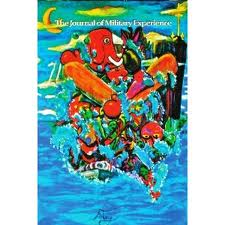
It came in the mail, a book from a professor at Eastern Kentucky University, The Journal of Military Experience. Most publications I get from universities are on topics that deal with academia, you know – ways to teach literacy, how the brain works, and other research topics. This book was different. It wasn’t written by a bunch of stuffy professors based on their special investigative studies. Nope, this book was written by a group of young veterans who had served overseas and were trying to reintegrate into civilian and academic life. Needless to say, many of the stories and poems were composed with emotions that were still raw from combat.
The authors were students in Professor Travis Martin’s writing class. The purpose of his unique course was to help with the initial assimilation phase of university life. “Some of the authors write about the unspeakable things that they have been asked to do, or more accurately, that have been done to them. But some focus solely on that work of translation, making sense of a warrior culture and the mentality of an individual who has been bred, trained, and conditioned by a society in desperate need of a few willing to sacrifice for the many (Introduction).”
The theme in many pieces confirmed how challenging returning from war was for these young warriors. They wrote about who they were before combat and how they had changed from the experience. How seeing friends die before their eyes, how being shot at on a regular basis, how tough it was to determine who would live or perish depending on their interpretation of an approaching car or a family on the side of the road, how these battle experiences made their time during and after conflict more demanding. One marine described “every day someone else would die or get seriously injured. One of my friends lost his legs from a roadside bomb right outside our front gate at 0200 in the morning (Guy Robert Lubin, p. 6-7)”.
Yet, in spite of all of the horror, all the wounds both physical and emotional, not one individual regretted serving his country. Not one person wished he/she did not complete a tour of duty overseas. What some did question, though, was when or if they would ever be free from the fiends of warfare. One author acknowledged “you truly stop caring. You don’t want to shoot, but you will. You won’t think about it, until you get home that is (Bradley Johnson, p. 53)”. He continued, “While you fight and suffer and struggle, you are also changing, becoming someone totally different. The harsh and violent realities of war forces you to change. Emotions are an inconvenience — they distract you — making you feel and think instead of react. A distracted soldier is a dead soldier. My evolution was a great thing on the battlefield, but it is just as much a bad thing when you get home (p. 53)”.
In this book, there are profound words and stories from those few who have given so much for freedom in our country and lands far away. They are “living stories” from real warriors. They ask nothing but a smidgen of understanding and a bit of healing when they return. For every vet past, present or future let us value the sacrifice and honor the service never failing to remember how all gave some, while some gave all.
Jun
13
WHAT YOU DON’T TALK ABOUT
Filed Under Combat PTSD, PTSD, Tears of a Warrior, Trauma, Treating PTSD, Veterans, War | Comments Off on WHAT YOU DON’T TALK ABOUT
by Janet J. Seahorn, Ph.D
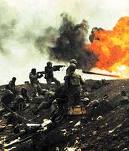
It was something I was not going to do – view the HBO special War Torn.
I tried watching it almost two months ago but didn’t last ten minutes before I had to turn off the DVD. It had too many reminders of suffering associated with the aftermath of combat. Yet, last night I decided to see what it had to say about PTSD, since this has been our mission for the last twelve years – including research & writing.
Throughout the movie there seemed to be a very powerful, recurring theme, a theme of silence. Silence made the veteran a prisoner of his/her own memories. It did not matter what branch of the military a person served – Army, Navy, Marines, Air Force, National Guard…
The role one played during combat was quite expansive, overwhelming individuals who served in all facets of war. From the front lines of combat, to medics, nurses, body baggers, and any person who had participated in the tensions of war. What was similar, however, was the manner in which the experiences were seared on the mind, body, and spirit. This mark of trauma often left the individual with a sense of hopelessness, apprehension, torment, and sometimes shame.
Then, to add insult to injury, when the vet came home… home to a place that he/she would feel safe and normal, returning to civilian life sometimes added greater stress. Many family members and friends simply wanted the vet to be like he was before he left for war. Become normal again.
Perhaps these words might offer some understanding of what isn’t talked about and isn’t said when a war veteran returns home.
THINGS YOU DON‘T TALK ABOUT
By Janet J. Seahorn, Ph.D.
What don’t you talk about,
You survivors of war?
You, who are suppose to be brave,
To be fearless and bold.
You, who have witnessed the best of mankind,
And the worst.
You, who daily endured death;
Who lived with the unknown
The woundedness of others
And the scars within yourself.
What don’t you talk about,
You warriors of battles recent and old?
The panic attacks that grip your throat,
The night sweats from vivid dreams;
Anxieties that propel you to a universe
That seems out of control.
Anger unprovoked and dangerously destructive.
The self-medication… attempts to silence
The voices and erase the gory scenes.
What don’t you talk about
You, who cry with Silent Screams?
You, who cannot seem to find your words,
For words are too simple, too clean
To describe your distress
To others who have no concept of war.
For what you don’t talk about
Your brother and sister warriors understand.
They have been to that place of darkness.
They know – and in that knowing
They are there to walk beside you
If only in spirit.
Perhaps these fellow casualties
Make talk a bit less necessary.


